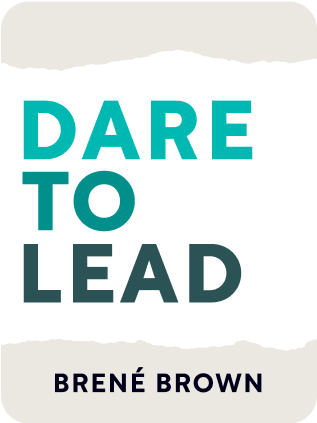

This article is an excerpt from the Shortform book guide to "Dare to Lead" by Brené Brown. Shortform has the world's best summaries and analyses of books you should be reading.
Like this article? Sign up for a free trial here .
How do you become a daring leader? Why is grounded confidence essential to daring leadership?
You become a daring leader by approaching your work with curiosity and facing your vulnerabilities with confidence. Grounded confidence is what helps you face up to tough decisions instead of running away or hiding behind defensive behaviors.
Read more about what it takes to become a daring leader.
Becoming a Daring Leader
When faced with vulnerable moments or tough decisions, a daring leader will depend on their “grounded confidence.” Grounded confidence is confidence firmly rooted in strong values, self-awareness, and curiosity—it’s what allows you as a leader to face your vulnerability instead of running away and hiding behind defensive behaviors. It’s a crucial component to any healthy work culture, but it’s not something that you inherently have.
Daring leadership is developed in two ways: 1) continually practicing your values and self-awareness and 2) approaching your work with curiosity.
1. Continually Practice Your Values and Self-Awareness
The first component—continually practicing your values and self-awareness—is what allows you to think clearly and with integrity when things get hard. Think about how in sports, you practice the same footwork or play over and over again. You do this so you can perform it perfectly every time, even in the heightened pressure of a game. Your body goes through the motions, while your mind focuses on the rest of the field instead of your feet.
Continually practicing your values and self-awareness works the same way—you practice until acting with integrity and avoiding defensive behaviors becomes second nature, even under pressure or in moments of fear. If you’re able to trust yourself to do the right thing—every time, without deliberation—you’ll be able to free up your mind to focus on the overarching goals of your organization.
This continuous practice does not mean that high-pressure, vulnerable moments will become easy. But it does mean that you will have the confidence to walk into these moments in the first place, knowing that your well-practiced values and self-awareness will guide you in acting with integrity, avoiding defensive behaviors and will ensure that you come out the other side having learned something.
2. Approach Your Work With Curiosity
The second component of grounded confidence—approaching your work with curiosity—grants you the courage to reckon with uncertainty and failure. In situations or decisions where the outcome is uncertain or failure is possible, it’s necessary to let go of your need for control and replace it with curiosity.
Curiosity is what allows you to approach the problem wondering what might happen instead of panicking because you can’t control the outcome. Approaching your work with a curious, “let’s just see what happens” attitude creates valuable learning opportunities—you ask questions and take time to examine the problems and solutions, instead of racing to find any answer that will fit.
Daring leadership based in grounded confidence is especially important in entrepreneurial and innovative settings, where you’re often required to navigate myriad paradoxes. Simultaneously, your position might require you to be optimistic yet extremely cautious, to be ambitious yet sweat the small stuff, to practice humanity while making tough decisions, to practice humility and boldness, and to strive for both speed and quality.
Grounded confidence allows you to handle the tension of these paradoxes and face the vulnerability of making tough, high-pressure decisions. With grounded confidence, you take the time to ask questions and learn as much as you can, and then rely on your values to make the best possible decision, rather than racing for an answer and choosing whatever option seems easiest.

———End of Preview———
Like what you just read? Read the rest of the world's best book summary and analysis of Brené Brown's "Dare to Lead" at Shortform .
Here's what you'll find in our full Dare to Lead summary :
- A breakdown of the four courage-building skills that make up brave leadership
- The three reasons why most people avoid vulnerability
- How to recover and move on quickly from failure






